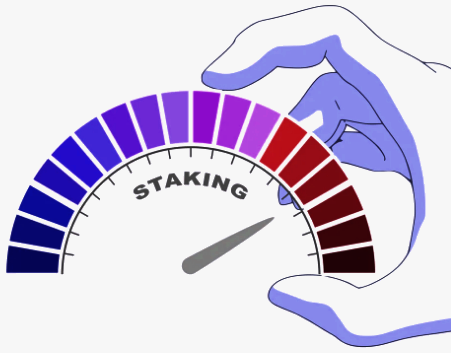Accredited InvestorsAltcoinAnatoli UnitskyAnti-Money Laundering (AML) In CryptoAPIArbitrageArtCoin TokenArticle DirectoryASICAuction Terminology GlossaryBasics of Stock Market InvestingBear MarketBest Crypto Payment Provider In the WorldBitcoinBlockchainBlockchain ConfirmationBlockchain Consensus MechanismBlockchain ForkBlockchain GlossaryBored Ape Yacht ClubBuild a Business That OutperformsBull MarketBuying SkyWay SharesByzantine Fault Tolerance (BFT) ExplainedCasascius CoinCentral Bank Digital Currency (CBDC)Centralized Crypto ExchangeCoinCoinsetCold WalletCollateralCommodity Futures Trading Commission (CFTC)Cross-Chain TechnologyCRUCrypto ExchangeCrypto GlossaryCrypto JokesCrypto Terms to KnowCrypto TickerCryptocurrencyCryptographyCryptojackingCryptounit BlockchainCryptounit GlossaryCryptounit ProgramdApp (Decentralized Application)Dead CoinDecentralized Exchange (DEX)Decentralized Finance (DeFi)Difference Between Bitcoin and EthereumDifferent Ways of Investing MoneyDigital CurrencyDistributed LedgerDo Your Own Research (DYOR)Dollar Cost Averaging (DCA)Dow Jones Industrial Average (DJIA)EncryptionERC-20ERC-721EthereumEvoScentFear Of Missing Out (FOMO)Fear, Uncertainty and Doubt (FUD)Fiat MoneyFNT Fintech CompanyGenesis BlockGlobal Unit PayGlossary of Banking TermsGlossary of Business TermsGlossary of Financial TermsHalvingHODLHot WalletHow Do I Start InvestingHow Rich is Satoshi Nakamoto?How to Create a BlockchainHow to Find Private InvestorsHow to Get Into FintechHow to Program Smart ContractsI Am Thrilled to Be a Part of This Global ProjectInitial Coin Offering (ICO)Initial Public Offering (IPO)Initial Token Offering (ITO)Innovation Basalt TechnologyInnovative Transportation TechnologiesInternational Bank Account Number (IBAN)Investing in Gold Mining StocksInvesting in Gold MiningJagerJoy of Missing Out (JOMO)Know Your Customer (KYC)LedgerLiquidity in CryptocurrencyMaker and Taker Fees in Crypto TradingMarket Capitalization (Market Cap)Meme CoinMetal Credit CardMetaMaskMillenials Now Have Access to Generational WealthMy Best Investment EverNew Digital EvolutionNFT GlossaryOff-Chain TransactionsOn-Chain TransactionsOpen Edition NFTPeer-to-Peer (P2P)Personal Loan GlossaryProbably the Best STO on the MarketProof of Stake (PoS)Real Estate Glossary of TermsReal Estate Investing GlossaryRebase TokenSecurities and Exchange Commission (SEC)Security Token ExchangesSecurity Token Offering (STO)Soulbound Decentralized Identities for Security TokensSoulbound ID Launch by Stobox Proves a SuccessSoulbound TokensStoboxStock Market GlossaryTestimonialsTether Platform and Token (USDT)UnitEx ExchangeUnitsky String TechnologiesUNTBUSDUValidatorWe Started Investing When We Were 25What are Blue Chip NFT?What are Blue Chip Stocks?What are Crypto Assets?What are Crypto Smart Contracts?What are CryptoPunks NFT?What are Digital Assets?What are Digital Collectibles?What are Gas Fees?What are Gas Wars?What are Hashmasks?What are Non Fungible Tokens?What are Non-Sufficient Funds (NSF)?What are Soulbound Tokens (SBT)?What are Stablecoins in Crypto?What are Transactions Per Second (TPS)?What are Utility NFTs?What are Utility Tokens?What Does Burning Crypto Mean?What Does Diamond Hands Mean?What Does Paper Hands Mean?What Does To The Moon Mean?What Does WAGMI Mean?What Happened to Satoshi Nakamoto?What is a 51% Attack?What is a Baby Boomer?What is a Backlink?What is a Banner?What is a Barcode?What is a Bid-Ask Spread in Crypto?What is a Block in Blockchain?What is a Block Reward?What is a Blockchain Address?What is a Blockchain Node?What is a Blockchain Oracle?What is a Blog?What is a Bond?What is a Bot?What is a Broker?What is a Business Accelerator?What is a Cash Cow?What is a Commercial Bank?What is a Commodity?What is a Con?What is a Credit?What is a Credit Limit?What is a Credit Rating?What is a Crypto Airdrop?What is a Crypto Bridge?What is a Crypto Scam?What is a Crypto Token?What is a Crypto Wallet?What is a Crypto Whale?What is a Crypto Winter?What is a Cryptocurrency Public Ledger?What is a Cryptocurrency Roadmap?What is a DAO?What is a Dark Pool?What is a Day Trader?What is a Dead Cat Bounce?What is a Default?What is a Derivative?What is a Digital Credit Card?What is a Fiscal Quarter?What is a Fungible Token?What is a Governance Token?What is a Grace Period?What is a Hard Fork?What is a Hot Wallet?What is a Hybrid Blockchain?What is a Hybrid PoW/PoS?What is a Joint Account?What is a Market Cap?What is a Merkle Tree in Blockchain?What is a Mining Farm?What is a Nonce? What is a PFP NFT?What is a POS System?What is a Prepaid Card?What is a Private Blockchain?What is a Private Key?What is a Public Blockchain?What is a Public Key?What is a Reserve Currency?What is a Ring Signature?What is a Routing Number?What is a Rug Pull in Crypto?What is a Safe Deposit Box?What is a Satoshi?What is a Security Token?What is a Seed Phrase?What is a Shitcoin?What is a Sidechain?What is a Soft Fork?What is a Spot Market?What is a State Bank?What is a SWIFT Code?What is a Tax Identification Number (TIN)?What is a Time Deposit?What is a Transaction Account?What is a Variable Interest Rate?What is a Virtual Assistant (VA)?What is a Virtual Card?What is a Virtual Currency?What is a Visa Card?What is a Whitelist in Crypto?What is a Whitepaper?What is Accounts Payable (AP)?What is AMA in Crypto?What is Amortization?What is an Accrual?What is an ACH Transfer?What is an Actuary?What is an Addendum?What is an Algorithm?What is an Angel Investor?What is an Annuity?What is an Asset?What is an ATM?What is an Atomic Swap?What is an Audit?What is an Avatar?What is an EIN?What is an Embargo?What is an Entrepreneur?What is an IDO (Initial Dex Offering)?What is an Interest Rate?What is an Internet cookie?What is an Investment Bank?What is an NFT Drop?What is an NFT Floor Price?What is an Ommer Block?What is an Orphan Block?What is an Outstanding Check?What is an Overdraft?What is Artificial Intelligence (AI)?What is B2B (Business-to-Business)?What is B2G (Business-to-Government)?What is Bartering?What is Bitcoin Dominance?What is Bitcoin Pizza Day?What is Blockchain Immutability?What is Blockchain Used For?What is BRICS?What is Business-to-Consumer (B2C)?What is C2C (Customer to Customer)?What is Capitalism?What is Catfishing?What is CFD Trading?What is Check Kiting?What is Cloud Mining?What is Communism?What is Content Marketing?What is Decentralization in Blockchain?What is DeFi in Crypto?What is Delisting?What is Depreciation?What is Digital Marketing?What is Diversification?What is Double Spending?What is Dumb Money?What is Dumping?What is Earnings Per Share (EPS)?What is Economics?What is Email Marketing?What is Equity?What is Etherscan?What is Fintech?What is Foreign currency?What is Forex?What is Fundamental Analysis (FA)?What is GameFi?What is Generative Art NFT?What is Gwei?What is Hard Currency?What is Hash Rate?What is Hashing in Blockchain?What is Inflation?What is Initial Game Offering (IGO)?What is Interest?What is Interest Income?What is Mainnet?What is Mastercard?What is Metaverse in Crypto?What is Mining in Cryptocurrency?What is Minting NFT?What is Mobile Banking?What is Money Laundering?What is NFT Alpha?What is NFT Metadata?What is NFT Rarity?What is NGMI Meaning?What is Nominal Interest Rate?What is Online Banking?What is Open-End Credit?What is OpenSea NFT Marketplace?What is Personal Identification Number (PIN)?What is Play-to-Earn?What is Polygon?What is Proof of Authority (PoA)?What is Proof of Work (PoW)?What is Public Key Cryptography?What is Pump and Dump?What is Quantum Computing?What is Refinancing?What is Retail Banking?What is Ripple?What is Sharding?What is Slippage in Crypto?What is Smart Money?What is Solvency?What is Soulbound ID?What is SSL?What is Staking in Cryptocurrency?What is Technical Analysis (TA)?What is Testnet?What is the Ask Price?What is the Better Business Bureau (BBB)?What is the Bid Price?What is the Dark Web?What is the InterPlanetary File System (IPFS)?What is the Gold Standard?What is the Lightning Network?What is the Prime Rate?What is the Sandbox?What is the Secondary Market?What is the World Bank?What is Tier 1 Capital?What is Tokenomics?What is TRC-20?What is Universal Banking?What is Unspent Transaction Output (UTXO)?What is Usury?What is Volatility in Crypto?What is Wash Trading?What is Web3?What is Whisper?What is XRP?What is Zero-Knowledge Proof (ZKP)?Who is Beeple?Who is Satoshi Nakamoto?Who is Vitalik Buterin?Why Tokenization is a Safe HavenWhy You Should Try Your Hand at Trading
Validator
- Home
- Cryptounit Glossary
- Validator
A validator is a node in a proof-of-stake (PoS) blockchain network that is responsible for validating transactions and maintaining the integrity of the network. In a PoS blockchain, validators are chosen to create new blocks and validate transactions based on the amount of stake, or the number of tokens, they hold.

Validators in a PoS blockchain are incentivized to maintain the integrity of the network by earning rewards for creating new blocks and verifying transactions. These rewards come in the form of newly minted tokens, transaction fees, or a combination of both.
Validators are also responsible for reaching consensus on the state of the blockchain. In a PoS blockchain, this is done through a process called "staking". Staking is the process of locking up a certain amount of tokens as collateral in order to participate in the consensus process and earn rewards.
The process of validating transactions in a PoS blockchain is done through the use of "staking pools". These pools are groups of validators who pool their resources together to increase their chances of being chosen to validate transactions and create new blocks. By pooling resources, validators can earn more rewards and make the network more secure.
Overall, validators play a crucial role in maintaining the integrity of a PoS blockchain network. They are responsible for validating transactions, creating new blocks, and reaching consensus on the state of the blockchain. They are incentivized to do so through rewards and the process of staking, which helps to ensure that the network remains secure and decentralized.
It's important to note that the process of validation in PoS blockchain can be different from other consensus mechanism, for example in Proof of Work it's the miner who validate the transactions and creates new blocks, and the validation process is based on the computational power.
Requirements to Become a Good Blockchain Validator
- A significant amount of the native cryptocurrency of the network as collateral (staking)
- High-availability and high-performance hardware for running a node
- A reliable internet connection and network infrastructure
- A strong understanding of the network's consensus mechanism and governance structure
- Effective security practices to protect the staked assets and the node from potential attacks
- Active participation in the network's governance and decision-making processes
- The ability to troubleshoot and maintain the node
- A strong reputation and track-record of being a trustworthy and reliable validator within the community
- Compliance with any legal and regulatory requirements

How Much Can You Earn as a Validator?
Becoming a validator in a proof-of-stake (PoS) blockchain network can be a lucrative opportunity, but the potential earnings depend on several factors such as the network's size, the number of validators, and the reward system.
Validators earn rewards by creating new blocks and validating transactions on the network. The rewards earned by a validator are directly proportional to their stake, which is the number of tokens they hold and validate.
The size of the network also plays a crucial role in the potential earnings. A larger network with more transactions generates more rewards for validators. Besides, the number of validators on the network can affect the rewards. Fewer validators in a network can earn higher rewards as there is less competition in creating new blocks.
The reward structure of the network can also impact the amount earned by validators. Some networks have a fixed reward system, while others may have a variable reward structure that adjusts based on the number of validators and the network's size.
However, being a validator also involves a certain amount of risk since the value of the tokens used as collateral can fluctuate, and validators may be penalized for violating the network's rules or failing to maintain the network's integrity.
Overall, the potential earnings depend on several factors, making it impossible to predict a specific amount. Still, it can be a profitable venture if done correctly. Before becoming a validator, it's important to research and understand the network's reward structure, size, and number of validators.
The earnings can vary from a few hundred to tens of thousands of USD annually, depending on the network's size, the number of validators, and the reward structure.
Liquid Staking vs Locked staking
Liquid staking and locked staking are two different ways of holding and staking cryptocurrencies to participate in the validation process of a proof-of-stake (PoS) blockchain network. Liquid staking allows the holder to move or trade their staked assets at any time, while locked staking requires the assets to be locked up for a certain period of time before they can be moved or traded.
Liquid staking provides more flexibility, while locked staking offers greater security and a higher chance of being selected as a validator. The choice between the two ultimately depends on the holder's risk tolerance, investment horizon and the specific characteristics of the PoS network they are staking on.
Related Articles

What is a Blockchain Node?
Some nodes also function as network communication hubs, relaying and forwarding network requests and data to other nodes, miners, and validators.

Proof of Stake (PoS)
In contrast, blockchains that use the PoS concept reach consensus through a process that selects validators based on a number of...

What is a Block Reward?
When a user wants to make a transaction, a block for that transaction is created and sent to all participants in the network for validation. Upon successful validation, those involved in...

What is Staking in Cryptocurrency?
By staking their cryptocurrency, validators have a chance to add new blocks and earn rewards. The more cryptocurrency staked, the greater...
- Home
- Cryptounit Glossary
- Validator